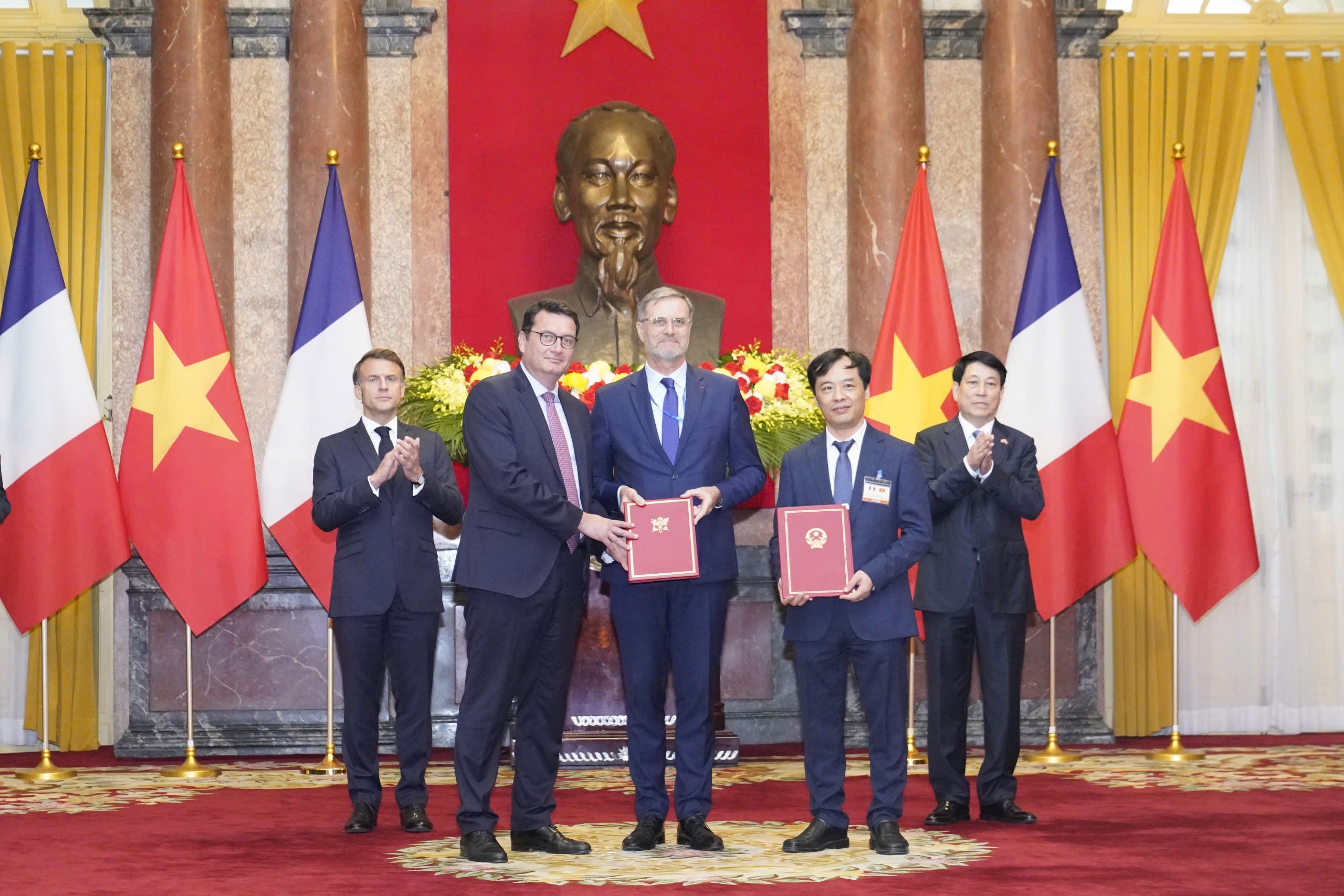Vietjet signed an agreement with Airbus in Hanoi on May 26 to order 20 widebody A330-900 aircraft to support its strategic expansion over the next decade.
The signing ceremony was witnessed by State President Luong Cuong and French President Emmanuel Macron, who is on a State visit to Vietnam from May 25 - 27.
This long-term order will support Vietjet’s ongoing international flight network expansion, enabling the airline to increase flights on high capacity routes across the Asia-Pacific region, as well as to introduce future long haul services to Europe.
Vietjet Chairwoman Nguyen Thi Phuong Thao said that these modern Airbus aircraft, with the latest levels of efficiency and lower fuel consumption, have accompanied Vietjet’s growth and will continue to support Vietjet’s global flight network expansion. "Our long-term investment in a modern, environmentally responsible fleet reflects our commitment to strengthening economic and technological ties between Vietnam and France," she added.
Mr. Wouter van Wersch, President Airbus International expressed pride that Vietjet has selected the A330neo as its widebody aircraft of choice to build on its success. "We look forward to continuing our partnership as Vietjet expands its reach," he added.
The new contract with Airbus doubles its firm orders for the A330neo to 40 aircraft. In addition, the carrier has 96 A320neo Family single aisle aircraft on order. Vietjet currently operates an all-Airbus fleet of 115 aircraft, comprising 108 single aisle A320 Family aircraft and seven A330-300s.
Meanwhile, at the end of April 2025, the A330 Family had won over 1,800 firm orders from more than 130 customers worldwide.
As with all in-production aircraft, the A330neo is able to operate with up to 50 per cent Sustainable Aviation Fuel (SAF), with a target to increase to up to 100 per cent SAF capability by 2030.
In an interview with VET, Ms. Helene Burger, Airbus Head of International Cooperation & Sustainability shared that Airbus views SAF as a key pillar of international aviation’s decarbonisation strategy, particularly in countries like Vietnam, where there is strong potential for SAF production. Airbus is actively supporting the aviation industry’s transition to SAF by ensuring our aircraft are compatible with up to 50 per cent SAF today and advancing toward 100 per cent SAF capability by 2030.
"Operating flights with SAF in Vietnam align with our broader commitment to sustainable growth and the reduction of CO2 emissions within the aviation sector," she said. "To promote SAF adoption in Vietnam, Airbus seeks to build long-term partnerships, support infrastructure development, and foster innovation in SAF production. Airbus fully supports Vietnam’s commitment to achieving net zero emissions by 2050, and we believe SAF is crucial in reaching this target."

On the same day, Airbus Defence and Space, the French Space Agency (CNES), and the Vietnam Academy of Science and Technology (VAST) also signed a Declaration of Intent (DoI), with the presence of the two Presidents.
The DoI was signed to strengthen their longstanding cooperation in the field of Earth observation, building on the success of the VNREDSat-1 space program. It reaffirms the three parties' shared ambition to develop and implement the next generation of Earth observation satellite systems in support of Vietnam’s climate change mitigation, disaster monitoring, and natural resource management.
Mr. Stéphane Vesval, Senior Vice President Sales Space Systems, Airbus Defence and Space, said that the renewed cooperation between Airbus, CNES and VAST reflects a clear dedication to long-term partnerships that build sovereign capabilities and deliver meaningful societal value.
As part of this broader collaboration, CNES and VAST intend to expand their scientific and technical exchange in areas such as Earth observation data while exploring the development of targeted applications based on shared data sets, and supporting capacity-building programs.









 Google translate
Google translate